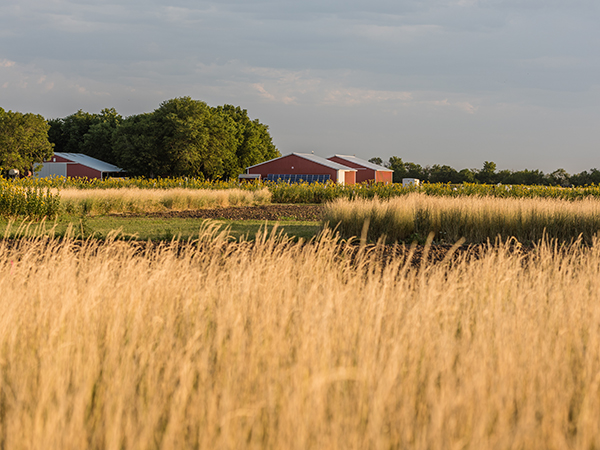Every gardener is familiar with the day-in, day-out battle against weeds, the annual dance of prepping the soil, sowing seeds, and/or planting starts. It’s a lot of work—worthwhile, satisfying work—but what if we could make the shift from annuals to perennial crops that don’t need to be reseeded or replanted year after year? Imagine the time and resources that would save, from the annual prepping and plowing to the down-to-the-soil garden clean-up. Certainly, we’re already familiar with some perennial crops—fruit trees, grapes, asparagus, rhubarb, and olives, just to name a few.
While the domestication of crops and livestock over 10,000 years ago allowed hunters and gathers to settle down and create communities, the annual grain crops that emerged—and are still in use—from that revolution require a yearly overhaul of the land, including the use of fertilizers and (often) pesticides.
This is the story of the majority of modern agriculture—crops are planted in monocultures necessitating industrial intervention to keep them thriving. This kind of agriculture commandeers one-third of the land on Earth, creating environmental damage that cannot be sustained. Annual grains require tillage, cause soil erosion, and rely on fertilizers, irrigation, herbicides, and pesticides.
Thankfully, there is a solution—perennial farming not only has the potential to reduce erosion rates by up to 50 percent, but it requires less irrigation and, because the crops’ extensive root systems are more efficient at absorbing chemicals, reduces chemical runoff—an important point since agriculture is responsible for 70 percent of water pollution in the United States. Finally, perennial agriculture uses less fossil fuel, since it doesn’t rely as much on heavy machinery for tilling and prepping fields.
The Land Institute of Salina, Kansas, is one organization dedicated to advancing perennial agriculture. Founded in 1976, this nonprofit organization is committed to researching and developing food production methods that actually sustain the land and the soil. In the words of co-founder Wes Jackson, “Essentially, all of nature’s ecosystems are perennial polycultures. The wilderness has to become a standard against which we judge our agricultural and cultural practices.” To achieve that co-creation with nature, TLI believes that we must “grow food in partnership with nature by planting perennial grains.”
If you’d like to learn more about the perennial crops now taking root and how you can join the polyculture evolution, join us on Thursday, August 1, from 5:30-7:30 p.m. when TLI’s president, Fred Iutzi, will join us to talk about this work. Following the talk, Iutzi will be joined by the executive directors of Maine’s MOFGA and Wolfe’s Neck Center in a panel discussion. MOFGA’s Sarah Alexander will talk about what calls her to sustainable agriculture, outline current projects, and share what is inspiring her as she looks toward the future of MOFGA and Maine’s agricultural systems. David Herring of Wolfe’s Neck Center will discuss his work to re-establish the relationship with farming and food through a major initiative aimed at helping advance regenerative agriculture. Tickets for this event are ten dollars; for more information and to register, visit Shop.MaineGardens.org.
